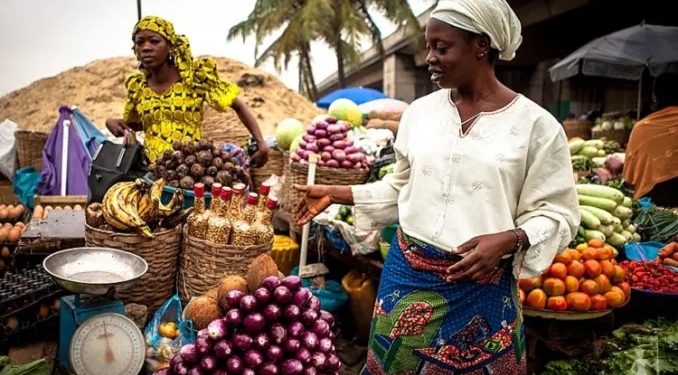The National Bureau of Statistics (NBS) has reported a decline in Nigeria’s inflation rate, which eased to 32.15% in August 2024 from 33.40% in July 2024. This decrease of 1.25 percentage points marks a slight relief for the economy amid ongoing price pressures.
Despite the monthly improvement, inflation remains significantly higher on a year-on-year basis, with the August 2024 rate standing 6.35 percentage points above the 25.80% recorded in August 2023. The report highlights that while inflation is slowing down in recent months, it still shows considerable year-over-year growth.
Monthly and Annual Trends
On a month-on-month basis, inflation in August 2024 was recorded at 2.22%, a marginal drop from the 2.28% seen in July. This indicates a slower increase in the average price of goods and services compared to the previous month.
Over the 12-month period ending August 2024, the average inflation rate rose by 31.26%, compared to 22.38% during the same period the previous year.
Urban and Rural Inflation
Urban areas saw a higher inflation rate, with a year-on-year increase to 34.58% in August 2024, up from 27.69% in the same month of 2023. Month-on-month, urban inflation stood at 2.39%, slightly lower than July’s rate of 2.46%. The 12-month average inflation rate for urban areas was 33.44%, showing a significant jump from 23.46% in August 2023.
In rural areas, the inflation rate reached 29.95% year-on-year, up from 24.10% in August 2023. Month-on-month, rural inflation was recorded at 2.06%, down slightly from 2.10% in July 2024. The 12-month average for rural inflation rose to 29.32%, reflecting increased price pressures in these regions.
Food Inflation
Food inflation remains a significant concern, with the rate climbing to 37.52% in August 2024, an 8.18 percentage point increase compared to August 2023. The rise in food prices is attributed to the increasing cost of key items such as bread, maize, yam, palm oil, and cocoa-based products.
However, on a month-to-month basis, food inflation slightly eased to 2.37% in August, down from 2.47% in July, due to slower price increases for items like tea, milk, and vegetable oils.
Regional Disparities
Inflation rates varied across states, with Bauchi recording the highest year-on-year inflation at 46.46%, followed by Kebbi at 37.51% and Jigawa at 37.43%. Meanwhile, Benue, Delta, and Imo saw the slowest rise in headline inflation, with rates of 25.13%, 26.86%, and 28.05%, respectively.
Bottom Line
While the drop in inflation provides some respite for consumers and businesses, the year-on-year increase reflects ongoing economic challenges in Nigeria, particularly with rising food costs and regional inflation disparities. The NBS report suggests that while inflationary pressures are easing slightly on a monthly basis, the overall cost of living remains significantly elevated compared to the previous year.









